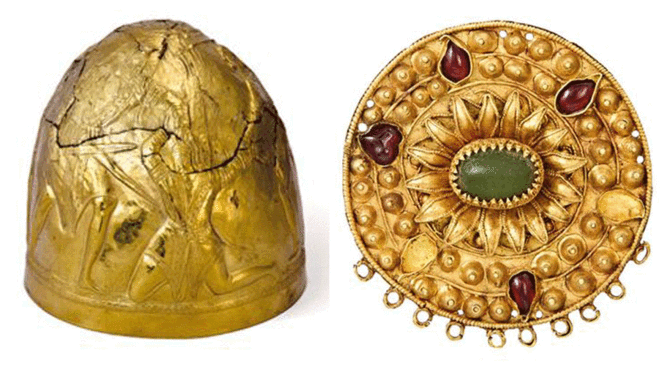Law & Politics
Dutch Court Rules for Crimean Treasures’ Return to Kiev
Russia has denounced the ruling.

Russia has denounced the ruling.

Hili Perlson

A Dutch court ruled on Wednesday that a vast collection of Crimean artifacts loaned to an Amsterdam museum in 2014, shortly before Russia annexed Crimea, belong to Ukraine and should not be sent back to the Russian-controlled peninsula.
The legal battle, that has been ongoing for over two years, involved four Crimean museums, which launched a joint legal bid for the return of treasures loaned to the Allard Pierson Museum in Amsterdam for an exhibition titled “The Crimea: Gold and Secrets from the Black Sea.” Kiev, meanwhile, argued that the archeological and historic artifacts were Ukrainian state property.
The Amsterdam Regional Court ruled “that the objects must go to Ukraine, the artifacts’ country of origin and cultural heritage,” AFP reports.
“The claim by Crimean museums that the artifacts are Crimean heritage, or belong to the Autonomous Republic of Crimea was not accepted by the judges, because neither are sovereign states,” the three-judge panel explained their decision.
The judges also made clear that their ruling does not imply ownership; according to UNESCO rules, only a sovereign state can claim objects as cultural heritage, Reuters reports. The rightful ownership of the collection should be adjudicated in a Ukrainian court, they concluded.
The Ukrainian government was ordered to pay €111,000 ($118,000) to the museum for over two years’ worth of storage costs while the artifacts were caught in legal limbo.
Ukrainian officials took the opportunity to comment on the judgement as a wider victory. “Ukraine has won on every count,” said vice culture minister Svitlana Fomenko, while president Petro Poroshenko said the court’s decision meant “not only that Scythian gold belongs to Ukraine, but Crimea too.”
Russia on the other hand denounced the Dutch court’s ruling, with the Russian cultural ministry calling it a “violation” of “the principles of inter-museum exchanges and the right of the people of Crimea to their own cultural heritage,” in a statement.
The Crimean museums have three months to appeal the ruling.
Russia’s annexation of the Crimean peninsula in March 2014, one month after Ukraine’s Moscow-backed president was ousted, brought Western sanctions against Moscow, and legal complications for Crimean organizations.